Are You There God? It's Me, Morfydd
In the psychological thriller Saint Maud, Welsh actress Morfydd Clark plays a woman who believes she can communicate with a higher power. In real life, she's still getting the hang of talking to the press without passing out.
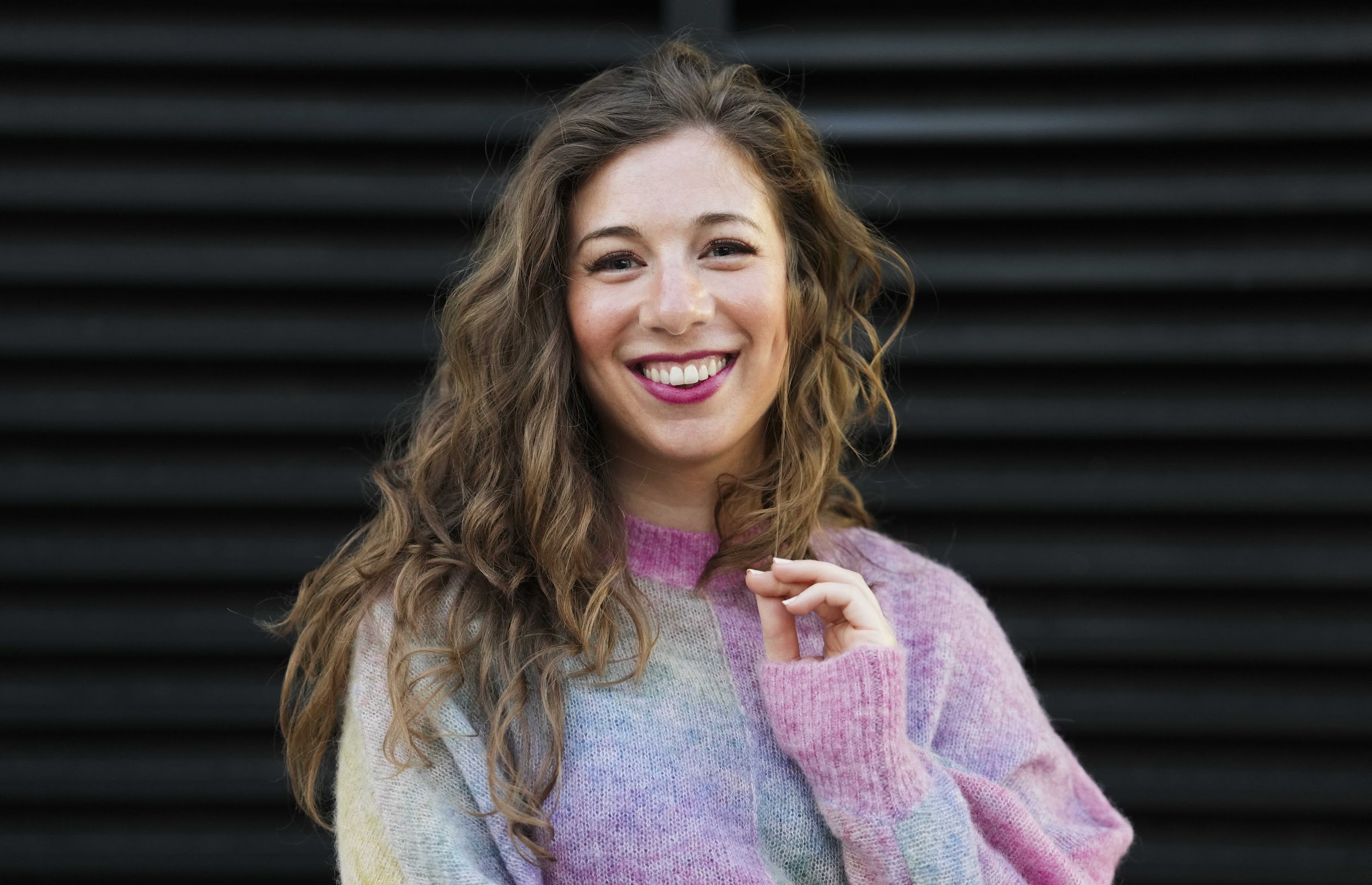
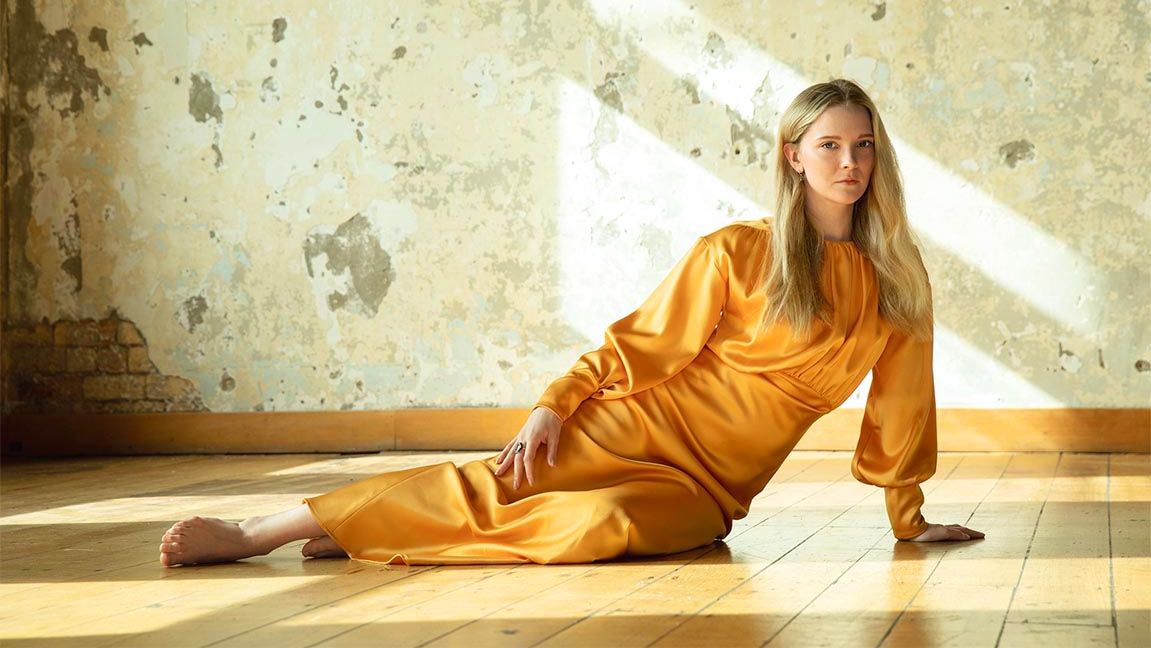
As you might expect given Canada’s reputation, the Toronto International Film Festival is a famously friendly event. But for Welsh actress Morfydd Clark, who attended for the first time in 2019, it was “one of the most stressful, awful experiences.” As the star of the psychological horror Saint Maud and a supporting actor in The Personal History of David Copperfield, Clark had two films premiering at the event. She was working double-time and getting more attention for her work than she’d probably ever gotten for anything in her entire life.
So she was not not freaking out inside when, during a Copperfield Q&A, she fainted on stage.
Now, Clark is safely holed up in her sunlit room in New Zealand, where she’s been living for more than a year while filming Amazon’s Lord of the Rings series. (She’s reportedly playing young Galadriel, Cate Blanchett’s part in the Peter Jackson movies.) She relates this story not as a charming anecdote but as a mortifying incident that she seems to hope will get less horrifying with the retelling.
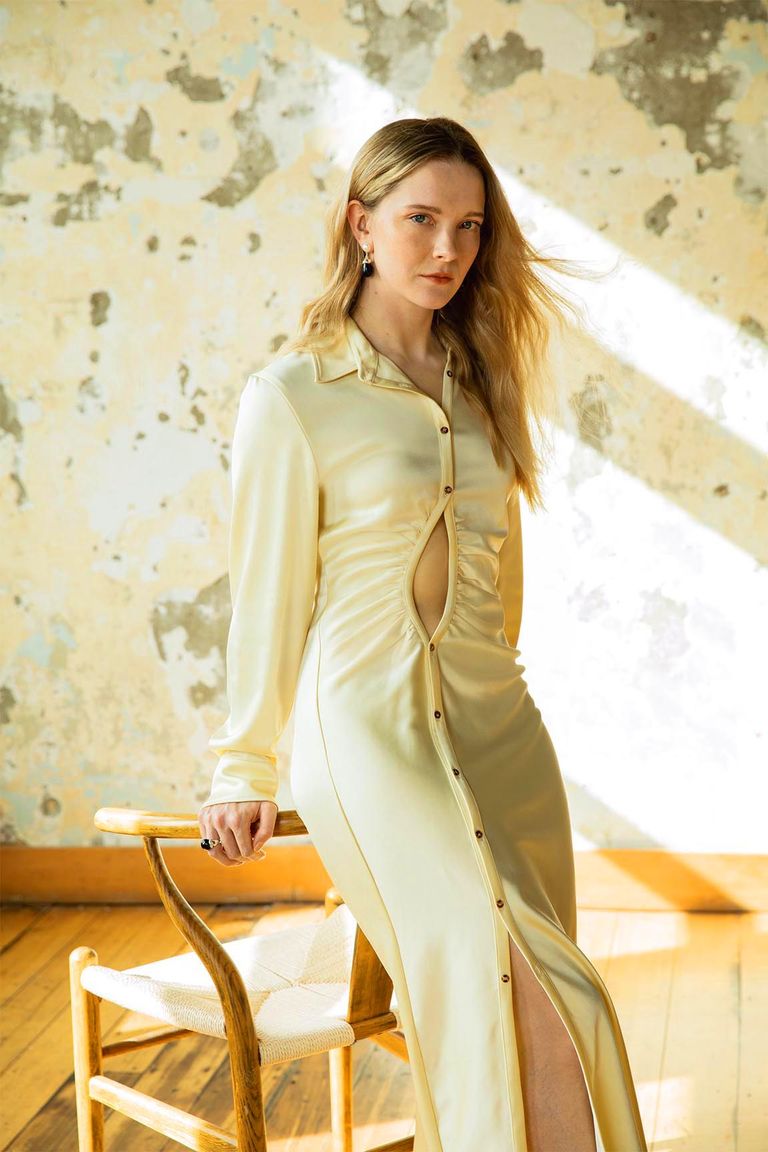
“It was so embarrassing,” the 30-year-old tells me over Zoom. “I just answered a question and was like—” she rolls her eyes back in her head so only the whites show, then grimaces. “Everyone was like, ‘Thank God you didn’t do that in Cannes!’ I was like: I could never go to Cannes.”
Somehow this minor loss-of-consciousness incident didn’t make any headlines, and Clark emerged from the whole thing not just unscathed but widely celebrated. Her performance in Saint Maud, as a profoundly lonely health care worker who believes she can communicate with God, had critics entranced, marveling at Clark’s physical intensity and emotional depth. In the film, releasing on VOD today, Maud undergoes a movie-long psychotic break, and Clark makes her every feeling—from her light flickers of irritation to the full-body torturous ecstasy she experiences when she senses God within her—vivid and alive.
The pandemic pushed Copperfield’s theatrical release to August 2020, and Saint Maud, the movie most likely to propel her to a new tier of fame, saw its premiere delayed multiple times.
“I've never craved a breakout moment,” she says. “I had very low expectations of myself.” Then she clarifies: “I just had realistic expectations. I just really wanted to basically be able to earn money without being in a job that I'd be shouted at for being bad at.”
Actresses often talk a good game about being so awkward or clumsy or shy; these anecdotes tend to be undermined by the venues in which the celebrities share them: beaming from the talk show couch, quoted alongside glossy photoshoots in magazines (not unlike this one). But Clark sounds earnestly relieved to be sidelined from the traditional press circuit by circumstances beyond her control. She cringes imagining herself bantering with the Jimmys of late night. “I’d be so awful. I’d be so tense,” she says. “I’d be like Maud.”
Stay In The Know
Get exclusive access to fashion and beauty trends, hot-off-the-press celebrity news, and more.
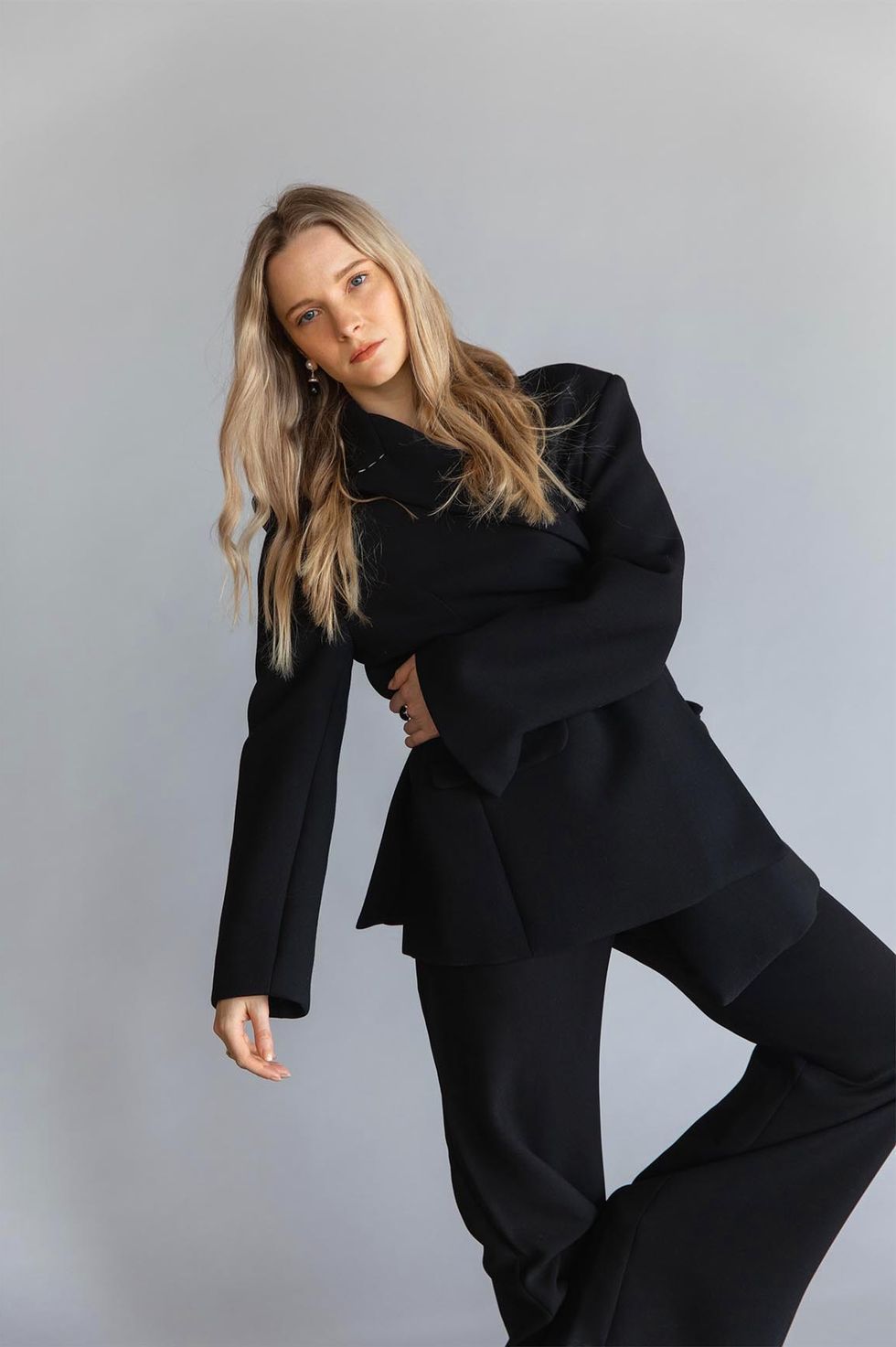
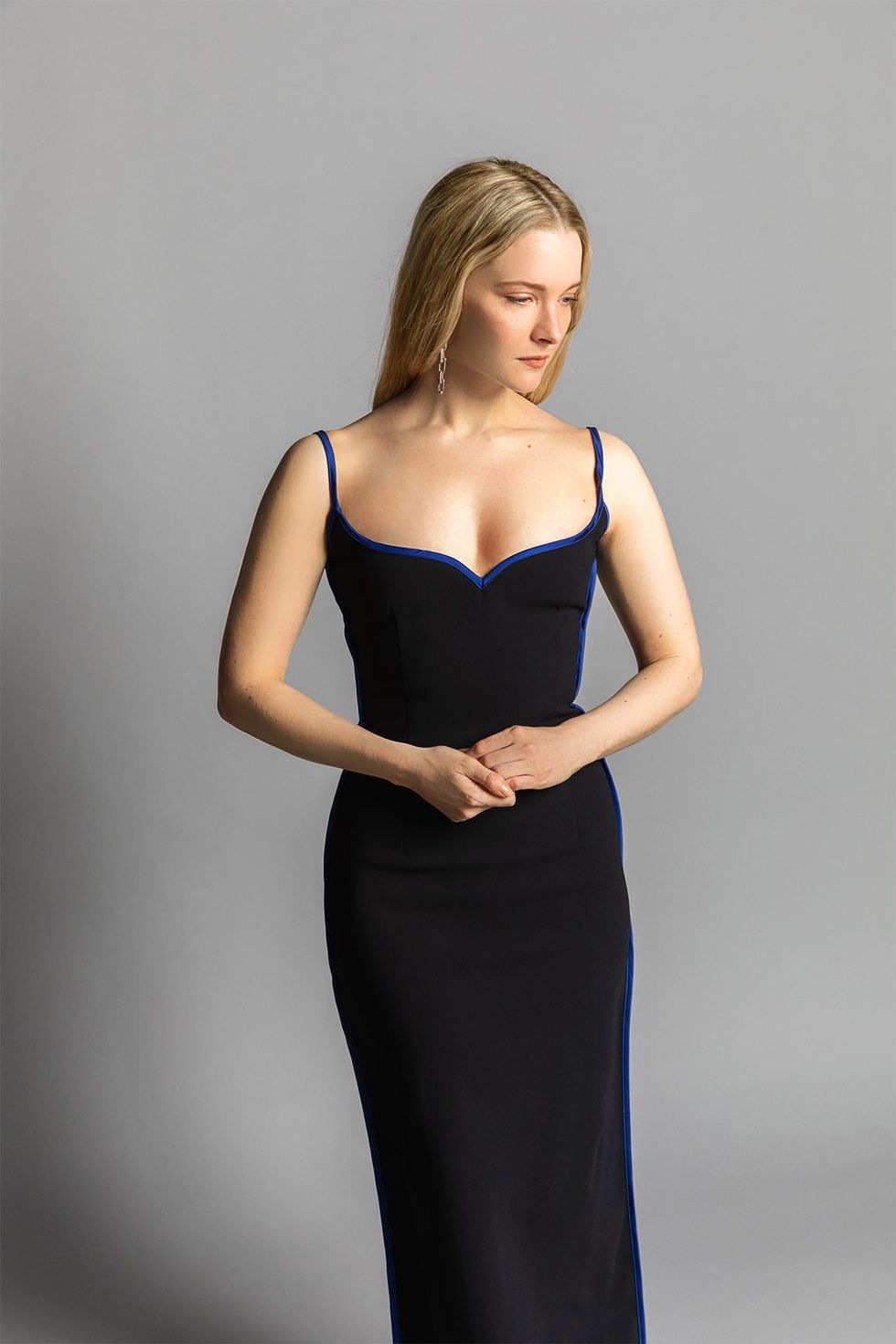
To prove her piety, Maud hurts herself in ways the more squeamish viewer will need to watch between the cracks in their fingers: kneeling on popcorn kernels, pressing pins up through the soles of her sneakers and then walking around in them. She has extremely unsexy sex. When she feels possessed by religious fervor, she has what writer-director Rose Glass calls “godgasms,” which require Clark to contort her face and body into gruesome, sickening shapes. “I think Morfydd quite enjoyed the scene where she’s sitting there in her bedsit, picking at the scab on her hand,” Glass says.
It’s not news that there’s little space for originality or strangeness in movies at the moment, unless said originality is Trojan-horsed into an existing IP (a comic book, a beloved ‘90s property, a board game). A runoff effect of these banal circumstances is that there’s even less room for film actresses who want to be fully unhinged, to get all their hairs out of place, to be wild and scary and even repulsive. Where can an actress, even a young one with zero name recognition, be as terrifying or disgusting as she likes? In a horror film.
Liberated from the conventional expectations for how they’ll look and behave, fresh faces (Parasite’s Park So-dam, Raw’s Garance Marillier) and seasoned actresses (Lupita Nyong’o in Us, Toni Collette in Hereditary) alike seem able to do their most interesting and unexpected work in these movies, where their beauty or sex appeal is either beside the point of the story or subverted in its service. In horror, women get to see ourselves as we (sometimes) actually, privately are: filthy, revolting, rabid, cruel.
“I feel really lucky to be allowed to play a really messy woman,” says Clark, who sees horror as “the kindest, most Maud-friendly part of the film industry. “It means that there's not the judgment that might be in other aspects of the industry. I feel that the horror world feels like a fringe festival.”
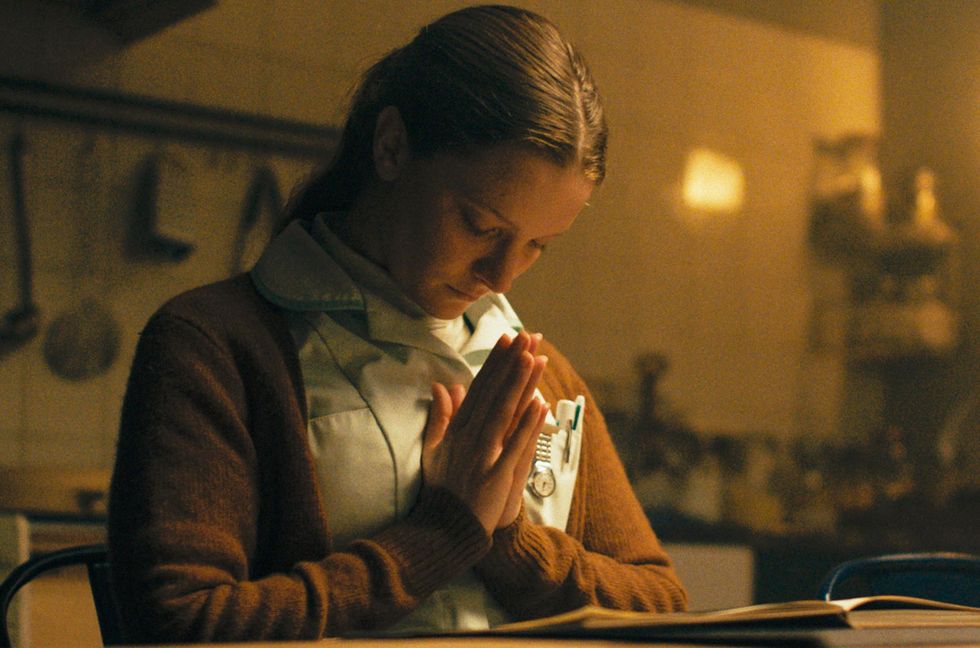
Clark as Maud. "I know she does terrible things, but she's just, to me, someone who I want to look after," the actress says of her character.
Produced by A24 (the independent company behind just-so-offbeat projects like Uncut Gems and The Lighthouse), Saint Maud is more about internal turbulence and creeping dread than jump scares and gore. That has become something of an A24 signature. They’re the house behind Florence Pugh’s breakout movie Midsommar and 2015’s The Witch, starring a then-unknown Anya Taylor-Joy. Before the pandemic put everything on pause, it seemed like Clark was poised to follow Taylor-Joy and Pugh’s trajectory. And even without the momentum of a big theatrical release, she’s still been cleaning up on the awards circuit: She’s been longlisted for the BAFTA for Leading Actress, and she recently won the British/Irish Actress of the Year award at the London Critics’ Circle Film Awards.
“The genre was kind of invented by women with Mary Shelley and Frankenstein,” Glass points out. “So women and horror, there’s always been something there.”
Allowing that stretches of Saint Maud, down its incendiary final shot, can have a frightening feel, Clark says she doesn’t see what’s so chilling about her character—even though Maud’s acts of penitence and devotion grow increasingly radical.
“It really surprises me how much people are scared by Maud, because I just don't feel…” Clark says, trailing off for a bit and pausing to think. “I know she does terrible things, but she's just, to me, someone who I want to look after.”
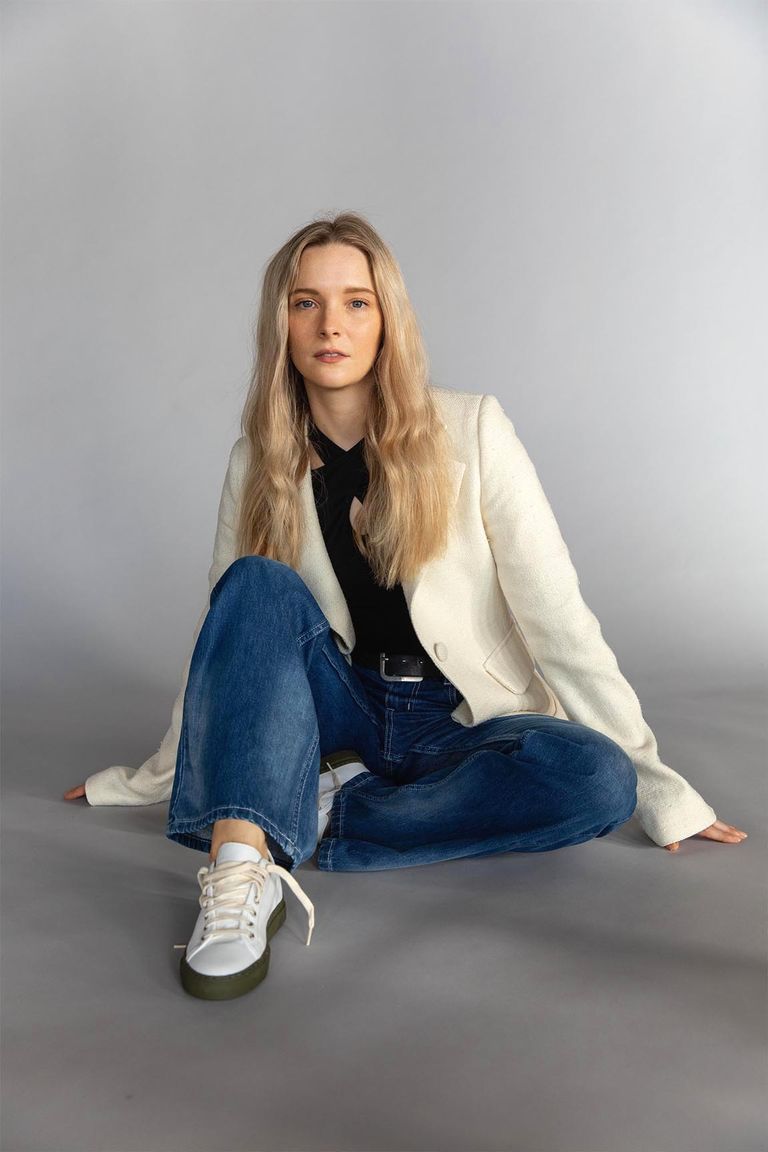
Clark describes herself as “an incredibly anxious person [with] a neurodiverse brain.” She sees Maud as almost an alternate-reality self: a sensitive person who needs help she never gets. “I spent lots of my teens and early 20s trying to prepare myself to exist in a world that I might not be that comfortable in, and I think that's why I understood Maud in that regard,” she says. “She's doomed to fail because of the expectations that are on her that she just can't fulfill.”
Clark has ADHD, which made school a misery—she was stressed out all the time, constantly feeling like she was in trouble—and wrecked her self-esteem. At 16, when she was supposed to take her A-levels (similar to the SATs), she had “a massive breakdown.” She was struggling to get off the couch when her mom, a pediatrician who works in child development, pushed her to pursue acting, signing her up for the National Youth Theater in Wales and Great Britain. Clark went out for the Welsh National Youth Opera, too.
I've never craved a breakout moment.
A handful of TV and movie roles followed, in period pieces (Madame Bovary, The Man Who Invented Christmas) and monster movies (BBC One’s Dracula) and hybrid period-piece-monster-movies (Pride and Prejudice and Zombies). When Clark was sent Saint Maud, she wasn’t necessarily expecting to click with the material. “I often read stuff that I'm like, ‘That's really good. Florence Pugh would be great doing that,’ ” she says. “Then there are parts where you're just like: ‘I understand this, and I could actually do this well. I couldn't just trick someone into casting me.’ ” The script floored her, tapping into some of her longtime obsessions: religion, health care, “weird women who struggle to fit in.”
Clark submitted an audition tape, which Glass remembers as an early standout. “She has this completely haunting face,” Glass says. “On the surface, the character is quiet and unassuming and sweet and charming. But there’s so much more going on [beneath that] as well. So we needed a real shapeshifter.”
Though it was made pre-pandemic, there’s something very quarantine-y about Saint Maud. Maud’s efforts at human connection fizzle into nothing and leave her lonelier than before. Her one dependable companion is the voice inside her head. While her actions are unsettling and even horrifying, along the way Maud is actually quite relatable: Just a sad girl talking to herself, feeling like shit, wishing a trusted authority figure would show up with a plan to make her suffering worthwhile.
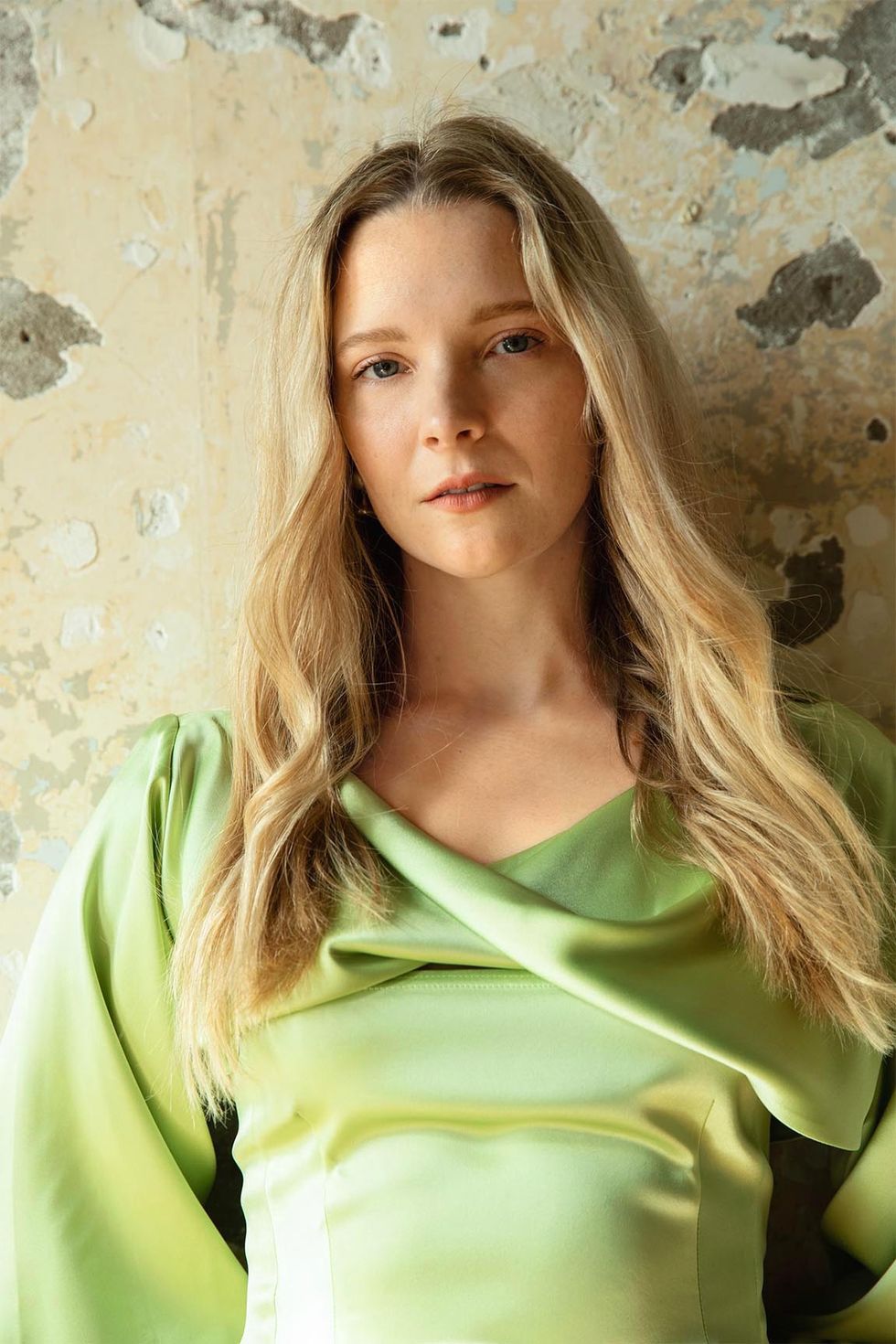
Clark lingers over how Maud could have fared better in a kinder, less alienating world. “What it highlighted for me was how impactful everyone can be towards each other,” she says. “And that we're just mean to people who are a bit strange.”
Even amid the release of Saint Maud—and even as she must know Amazon expects this Lord of the Rings series to be a Game of Thrones-level mega-hit—Clark seems a bit removed from the impending ramifications of her success. (Does she wish she could attend an in-person awards ceremony? “I don’t even like going to my friend’s birthday parties.”)
For now, she’s reading scripts and feeling grateful to have arrived in the industry at a time when “it’s just way more interesting than it has ever been because it’s being diversified,” she says. She feels like there’s more material out there for her— and for all the strange girls and screamers and scab-pickers—than ever before. Which is something of a revelation.
Stylist: Paris Mitchell Temple | Hair and Make-Up: Kath Gould
RELATED STORIES

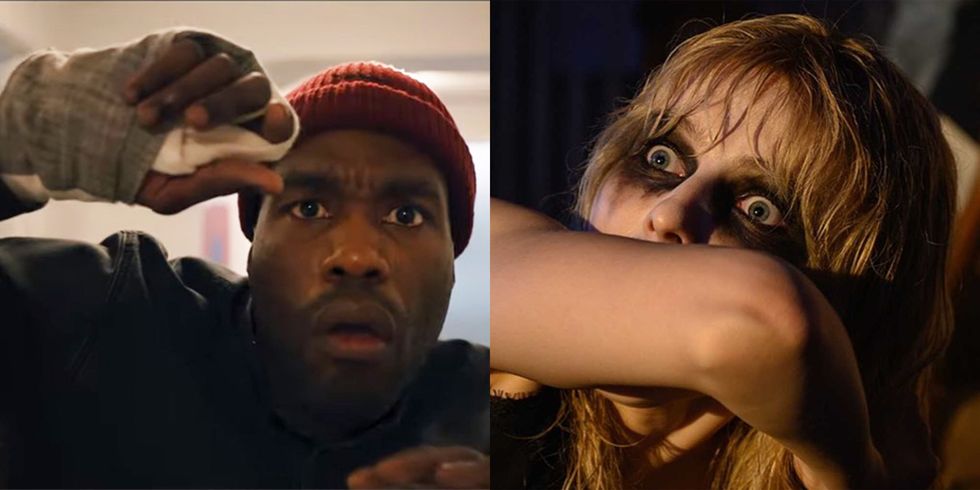
Jessica M Goldstein is a freelance writer covering all things culture. You can read her in the Washington Post, Vulture, McSweeney's Internet Tendency, and elsewhere across the internet. She would love to pet your dog.
-
 Princess Anne's Unexpected Suggestion About Mike Tindall's Nose
Princess Anne's Unexpected Suggestion About Mike Tindall's Nose"Princess Anne asked me if I'd have the surgery."
By Amy Mackelden Published
-
 Queen Elizabeth's "Disapproving" Royal Wedding Comment
Queen Elizabeth's "Disapproving" Royal Wedding CommentShe reportedly had lots of nice things to say, too.
By Amy Mackelden Published
-
 Palace Employees "Tried" to Get King Charles to "Slow Down"
Palace Employees "Tried" to Get King Charles to "Slow Down""Now he wants to do more and more and more. That's the problem."
By Amy Mackelden Published
-
 Every Ruth Ware Book, Ranked—From 'In a Dark, Dark Wood' to 'The Woman in Cabin 10'
Every Ruth Ware Book, Ranked—From 'In a Dark, Dark Wood' to 'The Woman in Cabin 10'Here's what you should read before her new thriller 'The Woman in Suite 11' hits shelves.
By Nicole Briese Published
-
 10 Books to Read for a Killer Vacation
10 Books to Read for a Killer VacationPack these novels about vacations gone very wrong on your next trip.
By Liz Doupnik Published
-
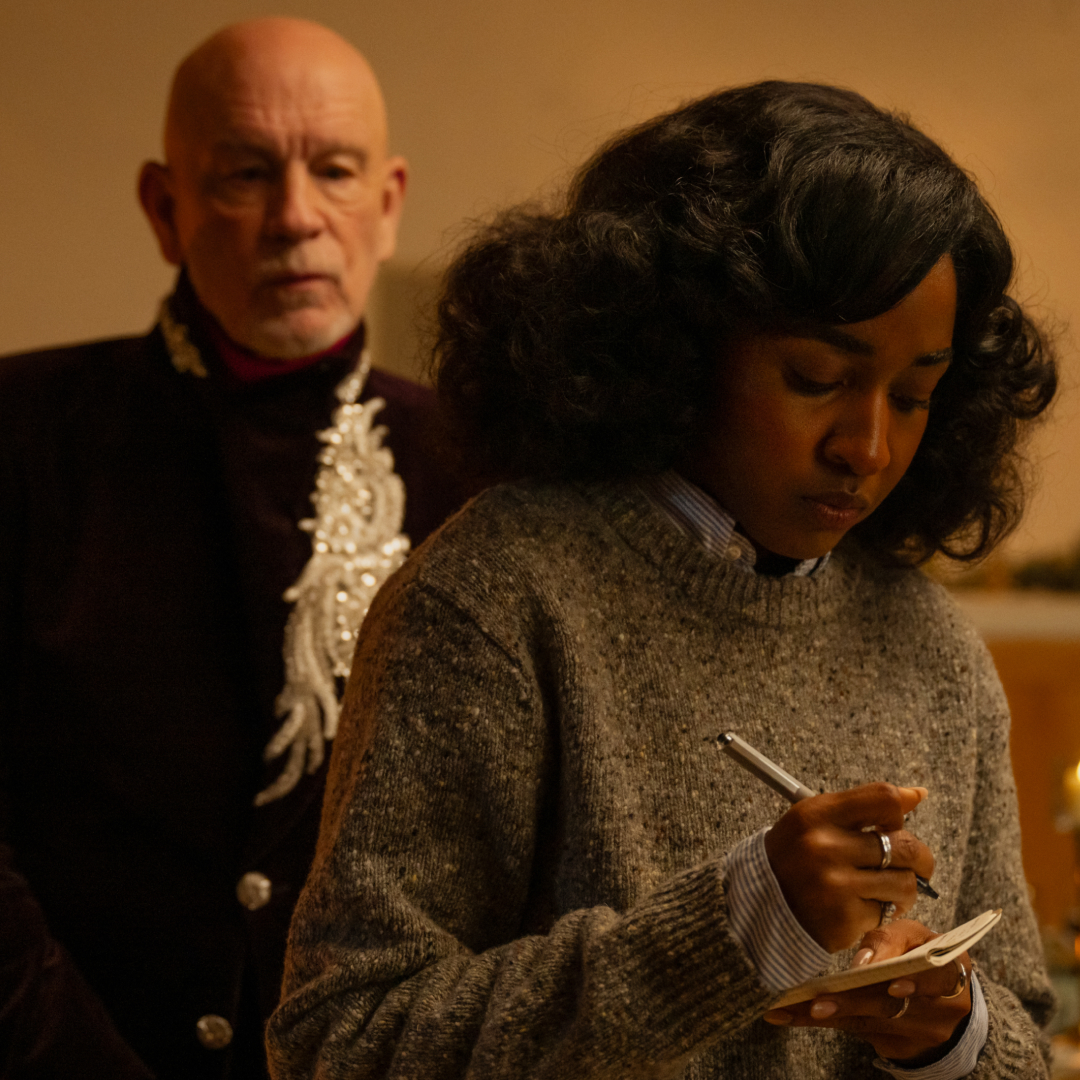 In 'Opus,' Cult Leaders and Pop Stars Are One in the Same
In 'Opus,' Cult Leaders and Pop Stars Are One in the SameThe A24 film's costume and production designers open up about crafting fictional pop icon Moretti’s style and mysterious estate.
By Sadie Bell Published
-
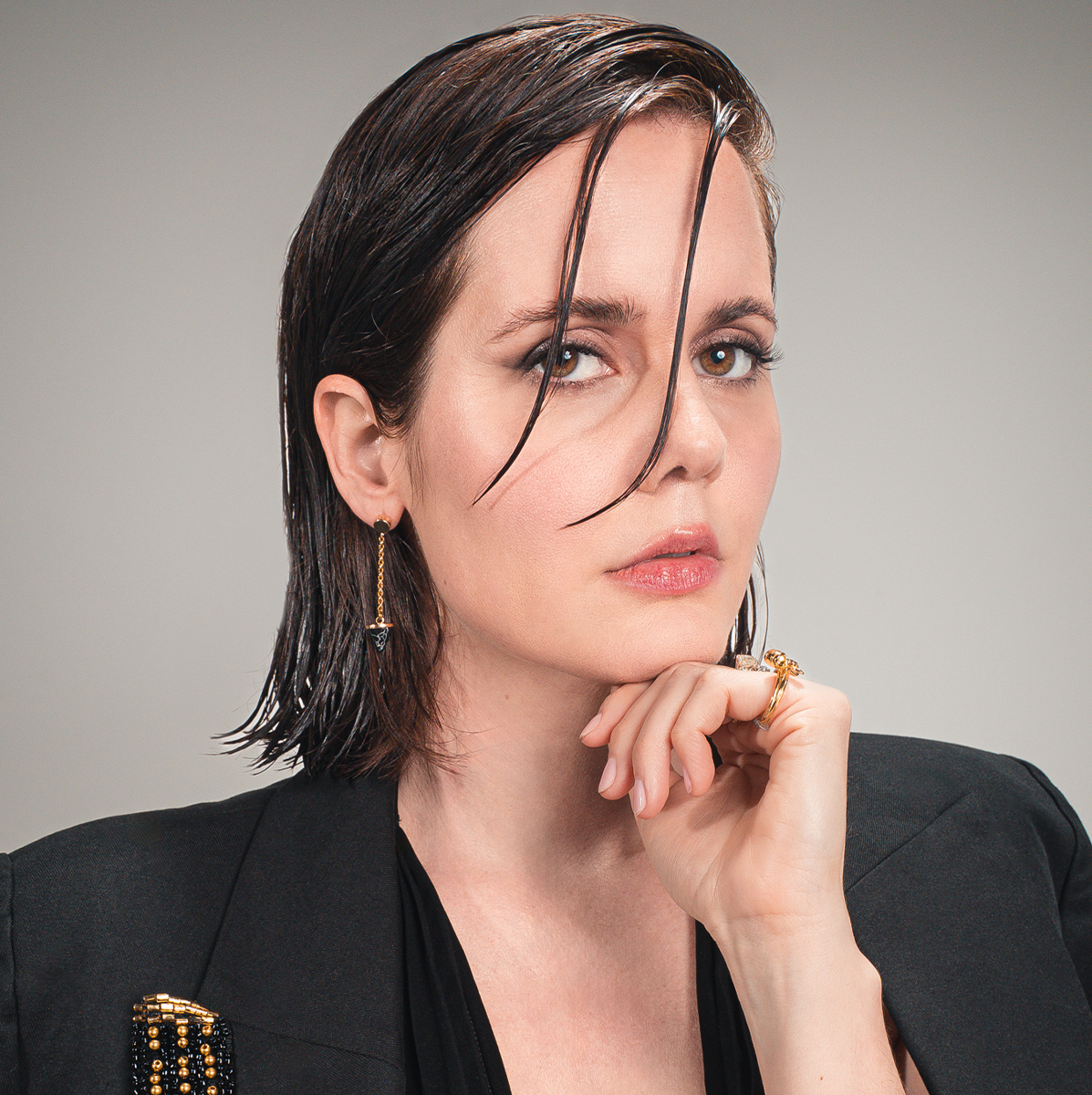 Ashley Sutton Is Not Going to Take Things Lying Down
Ashley Sutton Is Not Going to Take Things Lying DownThe actress who plays Hannah has been dying to talk about the Showtime hit's major twist for months.
By Sadie Bell Published
-
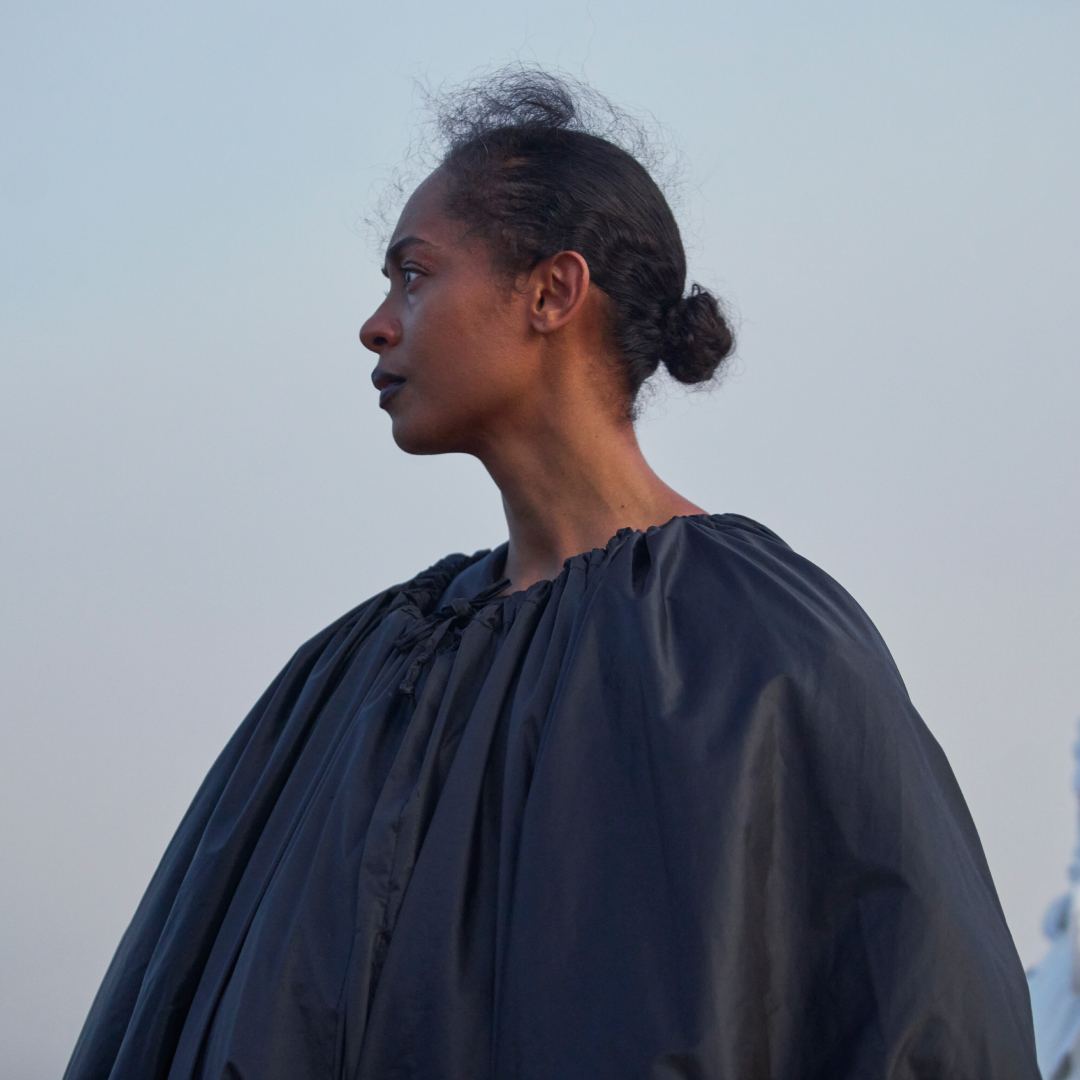 'On Becoming a Guinea Fowl' Is a Revolutionary Call to Speak Up Against Female Abuse
'On Becoming a Guinea Fowl' Is a Revolutionary Call to Speak Up Against Female AbuseAfter showing how a culture of silence around abuse can devastate entire generations, the arresting A24 film holds a mirror up to the audience and asks, \201cWhat happens if we scream?\201d
By Quinci LeGardye Published
-
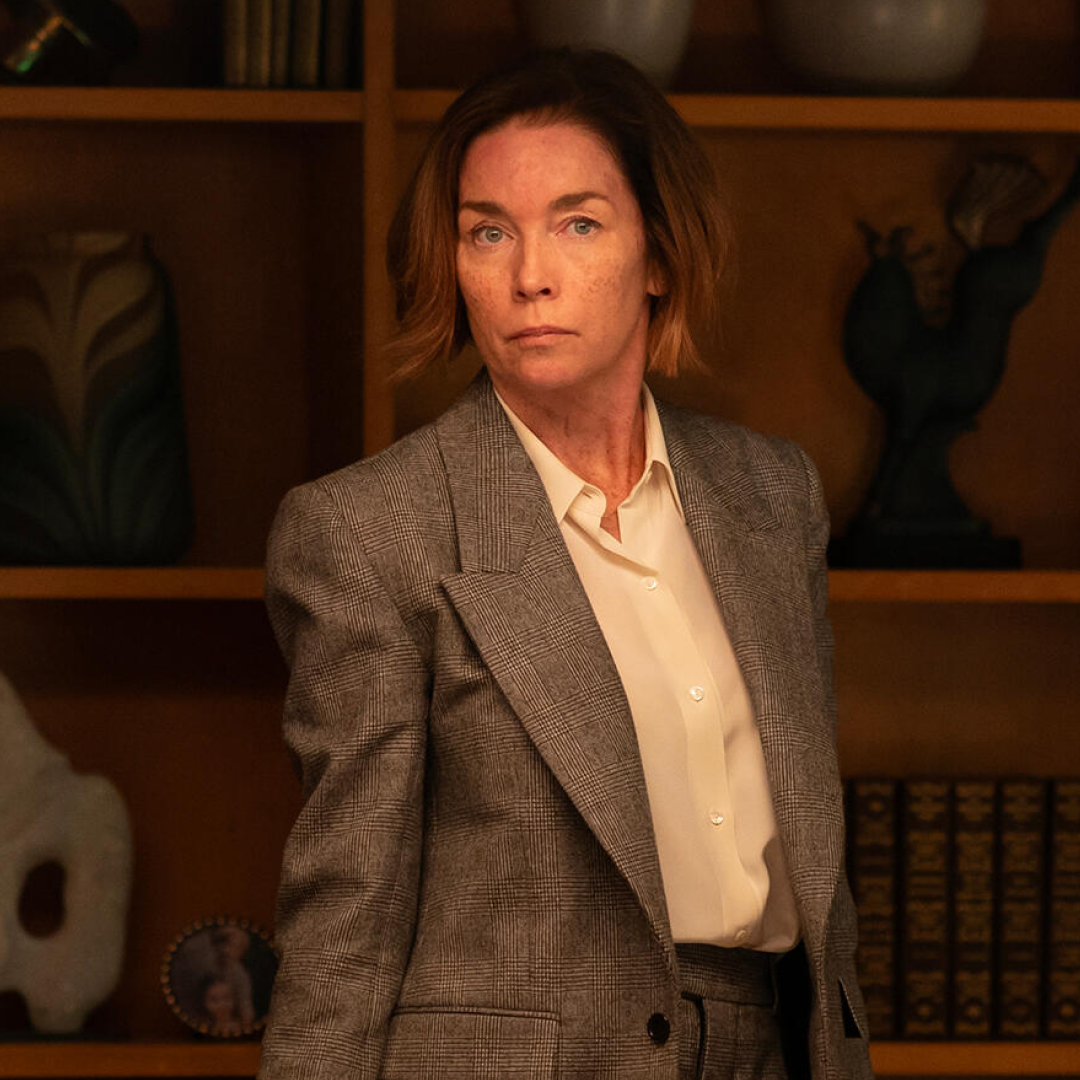 'Paradise' Finale Recap: Breaking Down the Shocking Season 1 Ending
'Paradise' Finale Recap: Breaking Down the Shocking Season 1 EndingWe're still reeling from all of those twists!
By Radhika Menon Published
-
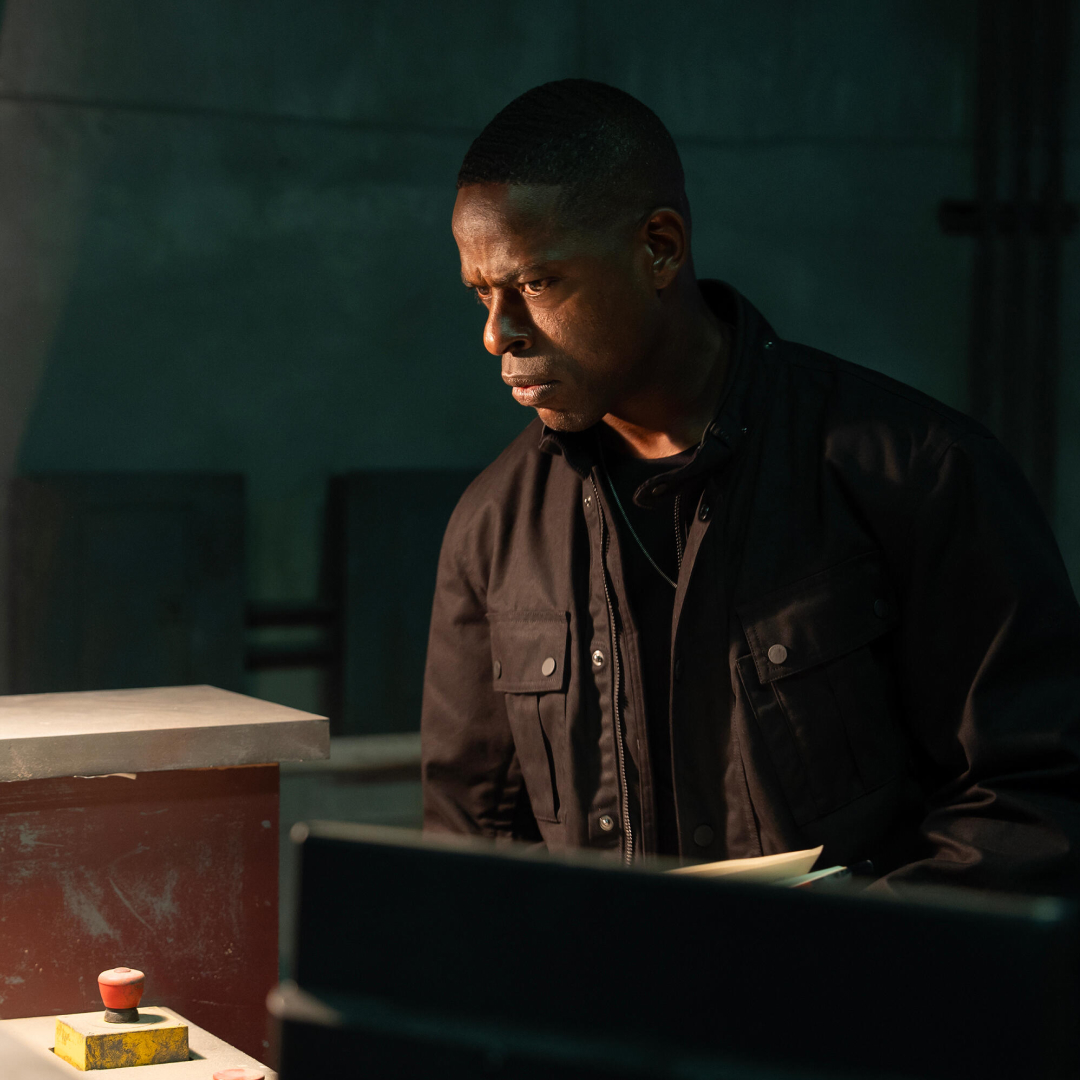 'Paradise' Season 2: Everything We Know
'Paradise' Season 2: Everything We KnowHere's everything we know about the next installment of the twist-filled series.
By Quinci LeGardye Last updated
-
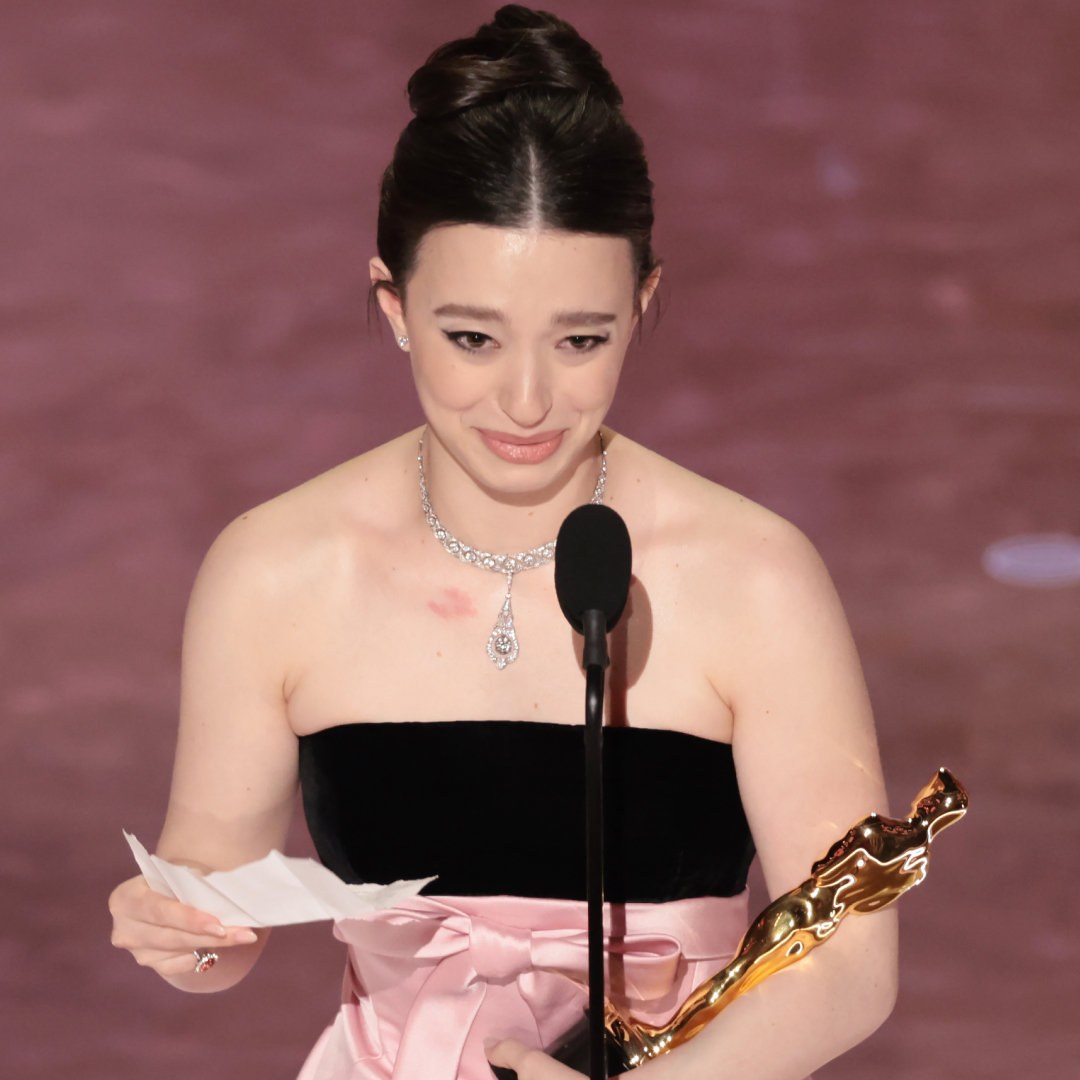 'Anora' Star Mikey Madison Takes Home the Best Actress Award at the 2025 Oscars in a Surprise Win
'Anora' Star Mikey Madison Takes Home the Best Actress Award at the 2025 Oscars in a Surprise Win"I will continue to support and be an ally."
By Quinci LeGardye Published